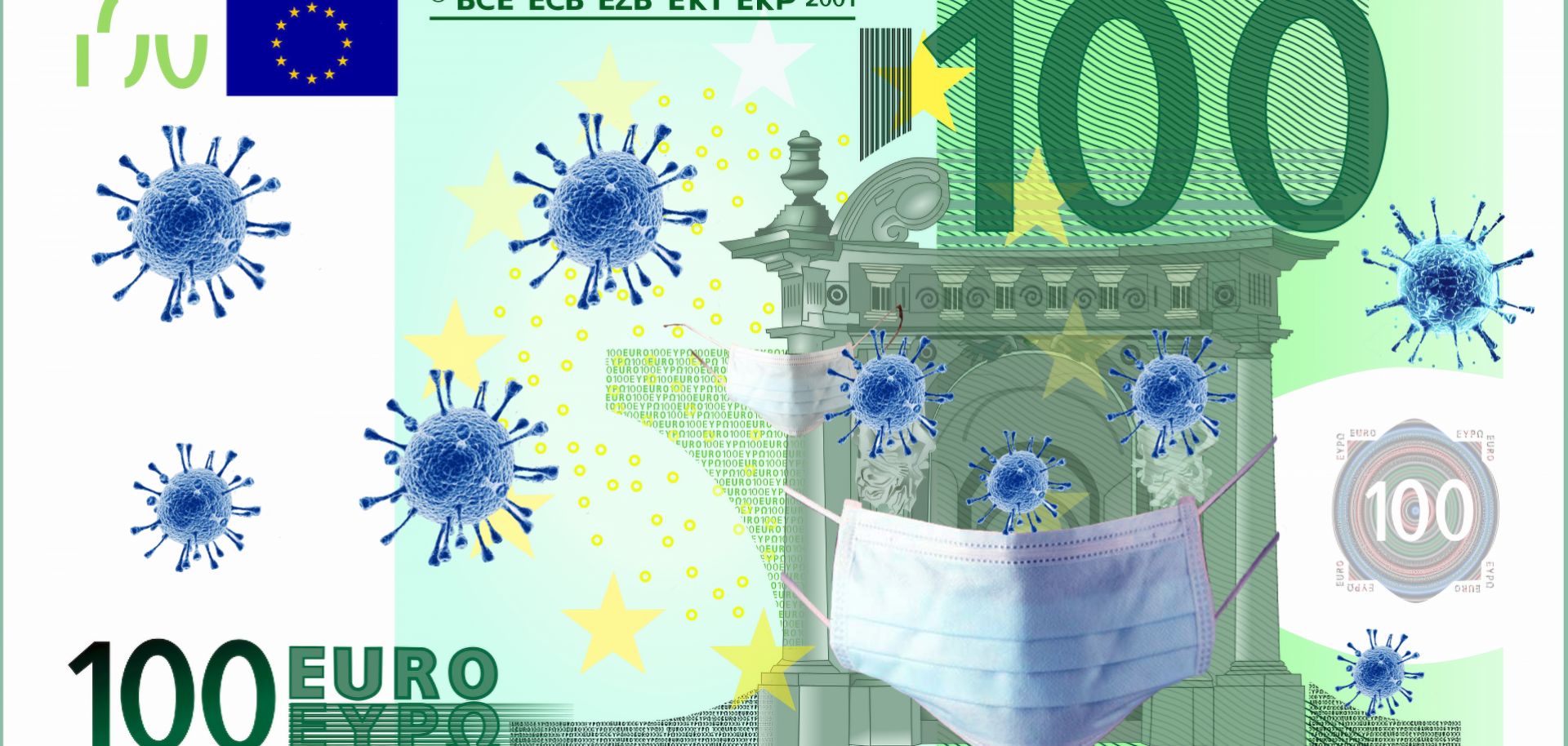ASSESSMENTS
In Europe, COVID-19 Extends the Tenure of Fragile Governments

Mar 30, 2020 | 17:21 GMT

A surgical mask and microscopic images of the new coronavirus overlay a 100 euro banknote. As it tears EU economies apart, the COVID-19 pandemic is also helping unite the bloc's formerly fragmented governments.
(Shutterstock/Kenan Stocks)
Highlights
- The coronavirus pandemic in Europe has helped stabilize several governments that were in politically fragile situations before the outbreak.
- But this stability will be short-lived as systemic issues will re-emerge as soon as the health crisis is resolved.
- Some of the measures that governments are taking to stimulate the economy will lead to deeper deficits and higher debt levels in the eurozone.
- This suggests Europe’s economic problems — and preexisting political woes — will last long beyond the current crisis.
Subscribe Now
SubscribeAlready have an account?
